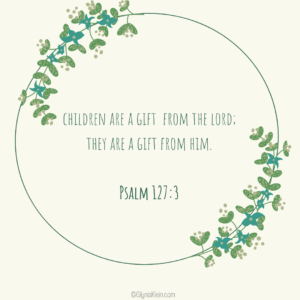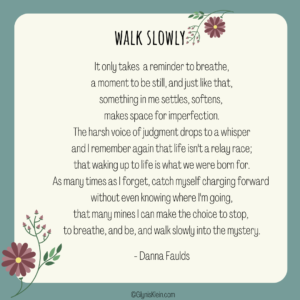This article explores practical faith-based tips to embrace shifting motherhood when you’re facing an empty nest.

All of a sudden the nest is empty. The birds have gone, and what had been a constant blur of activity is now nothing more than a few discarded feathers. Silence mutes all that was colourful and it is time to re-establish our significant place in an ever-changing world
marci seither (empty nest)
It’s been seven years since I felt the first pangs of the beckoning empty nest. A feeling of panic stirred a question deep inside me, calling for an answer – What do I do now?
Empty Nest Syndrome
Up until that moment I had spent 18 years fulfilling a promise I made to myself when I became a parent:
- I would strive to protect, guide, and shape my children’s growth.
- I would be there for the highlights but more so for the small moments – the first smiles and wobbly steps.
- I’d strive to be the soft place when they stumbled and fell.
I’ll always be grateful for that precious time when everything else faded into the background and time seemed to stand still. I stopped moving to keep my daughters steady. Suddenly, it was about to change.
Symbolic Loss
‘I grew painfully aware that this new season I had moved into felt a little like…death.’
barbara rain
Any life transition, whether it’s navigating the empty nest or moving into a new life stage, leaving a job, or ending a relationship, involves a symbolic loss – grieving what once was and can be no more.
Endings and loss are a natural part of life. It involves releasing something you hold dear. For empty nesters, it’s learning how to loosen your tight grip on your child so they can step more fully into their independence.
I had heard about the empty-nest syndrome and how challenging it can be for some parents. Particularly, parents who had set aside careers or lost sight of personal aspirations to focus full-time on parenting, as I had. Was this what I was beginning to experience? I wondered.
For empty nesters, the role you filled for so long is shifting. What’s been such a consuming part of your identity is changing to something new. Moving through that transition can evoke different emotions in different people.
Excitement for my child’s new life stage and emerging independence started to make way for panic. Had I done enough to prepare her for independence? Will she be able to handle life’s setbacks?
Nicole Kraus writes ‘I would have let him go one finger at a time, until, without his realising, he’d be floating without me. And then I thought, perhaps that is what it means to be a parent – to teach your child to live without you.’
What does the empty nest feel like?
In their book, Barbara and Susan’s Guide to the Empty Nest, the authors vividly describe the empty nest experience. They share varied, vulnerable emotions empty nesters experience as short cycles of sadness, hope, loneliness, expectancy, anxiety, and peace.
The Shifting Parenting Role
The years following the first glimpse into the looming empty nest were enlightening as I noticed my daughter’s growth. She demonstrated in big and small contexts the ways that she was ready to embrace independence. Such as insisting that she was willing and capable to travel on her own both locally and abroad. Or, how she naturally takes the lead when organising social events. And, how she supports a friend when they need a shoulder to lean on. More than anything, how she’d grown the courage to set boundaries and deepened her self-awareness.
What wasn’t as clear seven years ago was that I wouldn’t have to learn to live without her. Our journey together would continue into adulthood. But now it would now unfold in new ways.

Prayer Support
Barbara and Susan describe the parenting shift ‘from one of direct involvement to more intentional prayer and support’.
In practical terms, it looks something like this:
- Write down a list of spiritual, emotional, physical, mental, and social needs of your children at this life stage. This exercise is useful to assess your child’s state of readiness for greater independence. It will also highlight specific areas for continued support and prayer.
- Start a prayer journal to regularly pray about the areas you highlighted and to track your child’s progress.
- Focus on the new life stage in productive ways such as finding ways to best support their transition to adulthood.
Stepping Back Little by Little
- Step back little by little to give your child the space and freedom to make their own choices.
- Allow them the respect to establish their own values and lifestyle preferences, even if it differs from yours.
- Allow your child to take greater responsibility for their day-to-day care. Let them schedule routine appointments, drop off their car for a service, and manage a personal budget.
- Become a sounding board and motivator, rather than spoon-feeding them how to live life.
Dealing with Setbacks
- When they stumble, children often feel like they failed. In those moments, be a soft place for them to fall by comforting and encouraging them.
- Help your child reframe their challenges by seeking the lessons and insights hidden in hard experiences. They can learn pivotal truths in events that seem to them like failures. With every challenge they navigate, their character and resilience can grow stronger.
- Cheer your child on when they make choices that lead to deeper well-being.
Prepare the Child for the Path
We have to prepare the child for the path, not the path for the child.
tim elmore
As parents, we tend to focus on preparing a pathway for our children. We seek the best schools, colleges, and career opportunities to give them the best start in life. We moderate their early social lives and imprint our values, morals, and views on their identities.
Tim Elmore emphasises that we shape our children for the path instead of shaping the pathways for our children. Equip them with the life skills and tools that will empower them. This empowerment will equip them to withstand the storms of life rather than strive to protect them from the storms.
Dealing with Regrets
When you look back at your early parenting journey, are there things you regret? Are there cringeworthy moments you wish you could do over, or chapters you want to re-write or erase? You’re not alone.
Mom guilt is something many parents contend with as we balance careers, family, and other roles. Caring for more than one child and focusing on the needs of one child that requires more of your time can result in parent guilt. You do your best and pour your heart and soul into the God-given role as a parent. But the outcome you hope for is not guaranteed.
The choices our children make in later life may be different from what you hoped for. This includes paths they choose to explore, and the values they adopt or discard. Our children may emerge into adulthood with views and experiences that may look quite different from ours. When that happens, what do you do?
Do you blame yourself when your child does not follow the path you’d planned or hoped for when they reach adulthood? Can you hold space for your child to share their subjective childhood experiences without getting self-defensive?
Ten Ways to Combat Parent Guilt
- Offer yourself the grace of imperfection. No one is perfect. No-one!
- Gently take accountability for where you fell short while bearing in mind that we are in constant states of becoming. Some of our greatest lessons can flow from our deepest regrets.
- Extend grace to the early parent within you. Particularly, for decisions based on youthful aspirations, inherited beliefs, and undeveloped worldviews.
- Forgive yourself for not noticing every little thing they needed.
- Reframe your view from seeing yourself as a failing parent to one who is a work in progress.
- Allow your child a safe space to share their truth without judgment.
- Make space for you and your child to have different views instead of opposing or wrong views.
- Help your child fill in the pieces they may have missed in the challenges they recall.
- Allow the insights you gained from your early parenting to resonate and help you evolve and add new depth to your evolving relationship.
- Recall the things you’ve done well as a parent. What are you grateful for as you look back over your journey?
Responsible Stewards
Our children do not belong to us. They are not our possessions but God’s gift to us. But the gift of a child is different than any other gift. Our children are not ours to hold onto forever, like other gifts. They are in our care for a season where we are called to be responsible stewards who will give account for how we managed our stewardship to shape and train a child to become all they’re meant to be in this world (Prov 22:6).
The Brink of Midlife

The empty nest often overlaps with another significant milestone – standing at the brink of midlife. Or what Carl Jung called ‘the afternoon of life’. Standing at the edge of this new stage of life can leave you with no idea where to start your journey.
Emerging from those intense parenting years felt like taking a long deep breath of fresh air after swimming underwater for a long time. Once I learned how to adapt to the changing landscape in my parenting role, I still needed an answer to the question:
‘What do I do now?’
Losing oneself can occur very quietly in the world, as if it were nothing at all. No other loss can occur so quietly; any other loss is sure to be noticed
(Kierkegaard, 1957)
Can you, empty nester, relate to this sense of loss this quote evokes?
Self-exploration when facing the empty nest
As uncomfortable, even scary as the shift in the parenting dynamics is, it can lead to an exciting time of self-exploration. Who had I become in the years I was so intensely focused on being a mom? How had I evolved through motherhood?
Parker J. Palmer, in the book, Let Your Life Speak, writes about how listening to our lives can offer valuable clues to re-discovering your core self. Such listening can guide you back to your innate gifts and talents. These elements were present at birth but became overshadowed by the beliefs and expectations impressed upon you by your environment. Parker encourages us to seek to uncover those early untainted parts of ourselves. We can do so by re-visiting our early interests and things that sparked joy.
A Glimpse into Re-Awakening
I heeded Palmer’s suggestion and started the journey to re-discover my core self, and who I had become in the past two decades. I felt like someone emerging from a dense fog. As I dusted the cobwebs off almost forgotten dreams, something dawned on me. I realised that my parenting journey and other experiences had added new dimensions to those old dreams.
The years spent guiding, shaping, and caring for your children can silently enrich you in amazing ways. That is if you seek deeper meaning from that experience.
Parents facing the empty nest have increased selfless living, compassion, and empathy for others. They’ve learned how to work collaboratively with a co-parent, educators, and healthcare professionals. They understand the value of support from extended family who helped care for your child. They’ve learned about patience and resilience, how to comfort and encourage, and how to protect and defend the vulnerable.
The parenting years were not wasted time. It added new layers to your sense of self. May you take the time to re-discover the new, enriched you.
